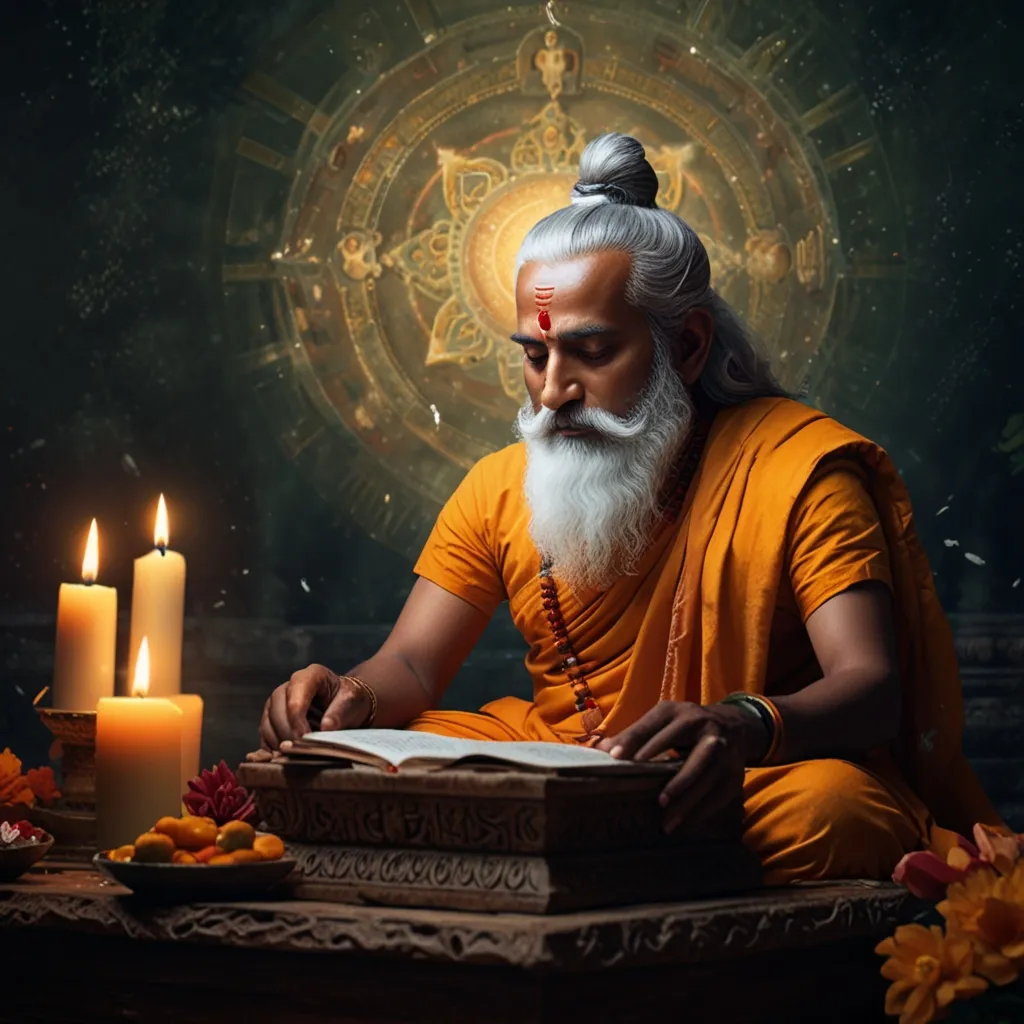In Hinduism, “Sruti” is a big deal. The word means “that which is heard” and it refers to the most sacred and ancient texts at the heart of Hindu beliefs. These texts are like divine whispers, thought to have been heard directly by ancient sages named Rishis from the divine itself.
The Sruti texts are made up of the four Vedas: Rigveda, Yajurveda, Samaveda, and Atharvaveda. Each Veda has four parts: Samhitas, Brahmanas, Aranyakas, and Upanishads. Samhitas are hymns and prayers, typically sung in honor of gods. Brahmanas explain the rituals in the Samhitas with detailed how-tos. Aranyakas move towards philosophical thoughts, shifting focus from rituals to deeper thinking. Upanishads dive into big philosophical questions about life and existence, offering profound insights.
Sruti texts are seen as eternal and beyond human creation. They were passed down verbally for ages before being written down. This oral tradition highlights the need for precise pronunciation and recitation since the true power of Sruti lies in its exact sounds.
On the flip side, there’s Smriti, meaning “that which is remembered.” These are secondary texts, including popular ones like the Puranas and Mahabharata. Unlike Sruti, Smriti is written by humans and is more flexible with many versions. But whenever there’s a clash between Sruti and Smriti, Sruti usually takes the crown.
All schools of Hindu thought accept the authority of Sruti, even if they interpret it differently. For example, the Mimamsa school focuses on the moral teachings from Sruti, while others may question the divine origin but still hold it in high regard.
Sruti texts aren’t just religious but also treasures of knowledge in philosophy, rituals, and even science. They are the wellspring from which all Hindu knowledge flows and have impacted not just Hinduism but other religions and philosophies too.
In short, Sruti is the cornerstone of Hindu sacred texts, believed to be divine in origin and passed down orally. These texts are packed with wisdom and have deeply influenced Hindu thought and culture over the centuries.






